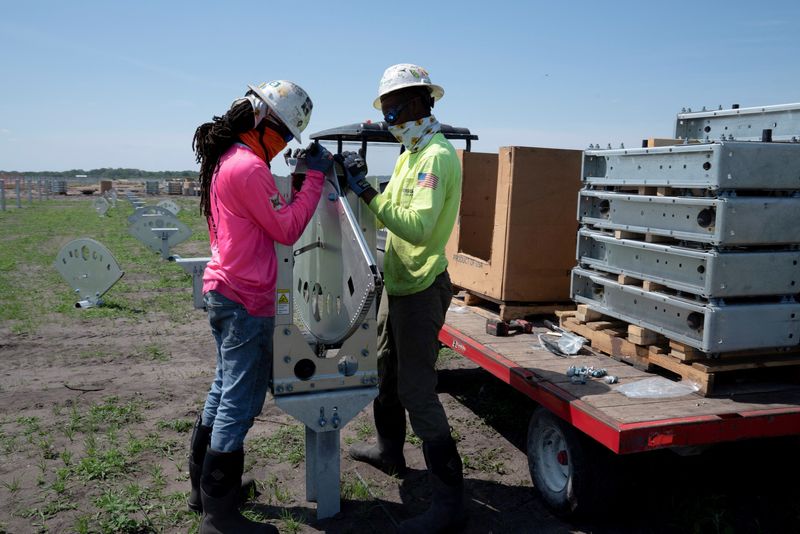(Reuters) – President Joe Biden’s administration on Tuesday unveiled final rules for new clean energy subsidies in a bid to make jobs and wages in green industries competitive with those in the oil and gas sector.
The guidelines for companies seeking to claim tax breaks tied to job quality are intended to deliver on Biden’s vision that fighting climate change will create millions of jobs with good wages and benefits.
Biden is trying to highlight his economic policies as he competes for votes ahead of his November general election rematch with former President Donald Trump.
The Inflation Reduction Act, which was signed into law in 2022, provides an estimated $370 billion in subsidies for solar, wind and electric vehicles.
Under Treasury Department rules, companies that pay prevailing wages to employees and hire apprentices for projects seeking IRA tax benefits would receive five times the 6% basic statutory credit. Developers have been eagerly awaiting the requirements for claiming the subsidies.
The provision is intended to give companies a tangible incentive to raise wages in a sector that is lagging behind sectors such as nuclear power and coal.
“In the fossil fuel industry, our experience over the last hundred years has been that they pay high wages and benefits. And in the sustainable industries that have flourished in recent decades, that hasn’t been the case,” said Sean McGarvey, president of the labor group North America’s Building Trades Unions (NABTU) on a call with reporters. “With these new rules, there will be huge increases for many, many people who now exist in this sector, and for the hundreds of thousands of people who will join this sector with a middle class, family-sustaining wage and good health. care and benefits after retirement.”
The government said it was encouraging companies to enter into project labor agreements, which set wage and working conditions between unions and contractors on specific projects, to help them comply with the rules.

Unions are a key constituency for Biden.
The Treasury Department said the Internal Revenue Service would devote significant resources to promoting and enforcing compliance with the new rules.


